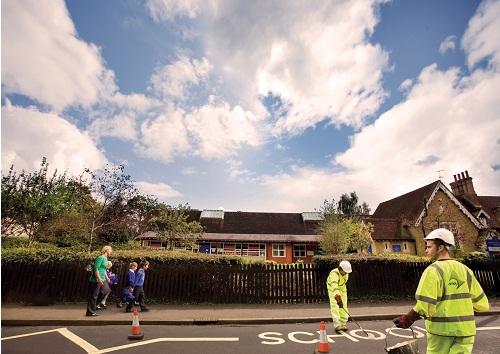
There is some confusion around the Social Value Act 2012, which became law in the UK in March this year. On the face of it, it’s simple isn’t it? The UK Government is determined to ensure not just value for money, which can reduce public spending in these tough economic times, but also social value. It wants to ensure stronger communities, improved health and better environments for all. But the problem is there’s currently no accepted definition of ‘social value’, so it’s open to a wide range of interpretation.
Local authorities and all public bodies are still getting to grips with how the act will affect their day-to-day decision-making, as are public sector providers. Amey has been living the social value ethos for some time, so we welcome that it’s now being recognised and formalised in legislation. Amey has always had long-term relationships with clients and communities, so we’re used to playing the long game.
We don’t just win work, complete it and move on, we’ve always been interested in investing in the communities and environments in which we work – Amey has never been about short-term gain, we’re all about value for the long-term and building strong futures for all. We’ve been involved with the Duke of Edinburgh’s Award scheme in the UK for over a decade – investing in young people in terms of skills and career development and helping them to reach their full potential. Amey is committed to training the engineers of the future and has pledged to have at least two per cent of our workforce as apprentices. It is an investment in the professionals of tomorrow, which also has benefits for everyone today. This is exactly what social value should be about.
In Scotland, Amey has linked up with North Lanarkshire Council on a decade-long highways joint venture, where the aim is to deliver valuable social benefits as well as roads, street lighting and winter services. Under this innovative model, both Amey and the authority have shares in the joint venture and the council has already invested more than £10m back into the community
So social value in practice is already well underway in the UK and this legislation can only help ensure it becomes ingrained as part of our working culture. But how will this UK law translate into a wider European context? Can it potentially influence far wider than its legal reach? Perhaps this is one instance where UK law can set the agenda throughout Europe…? Only time will tell.






There are no comments yet